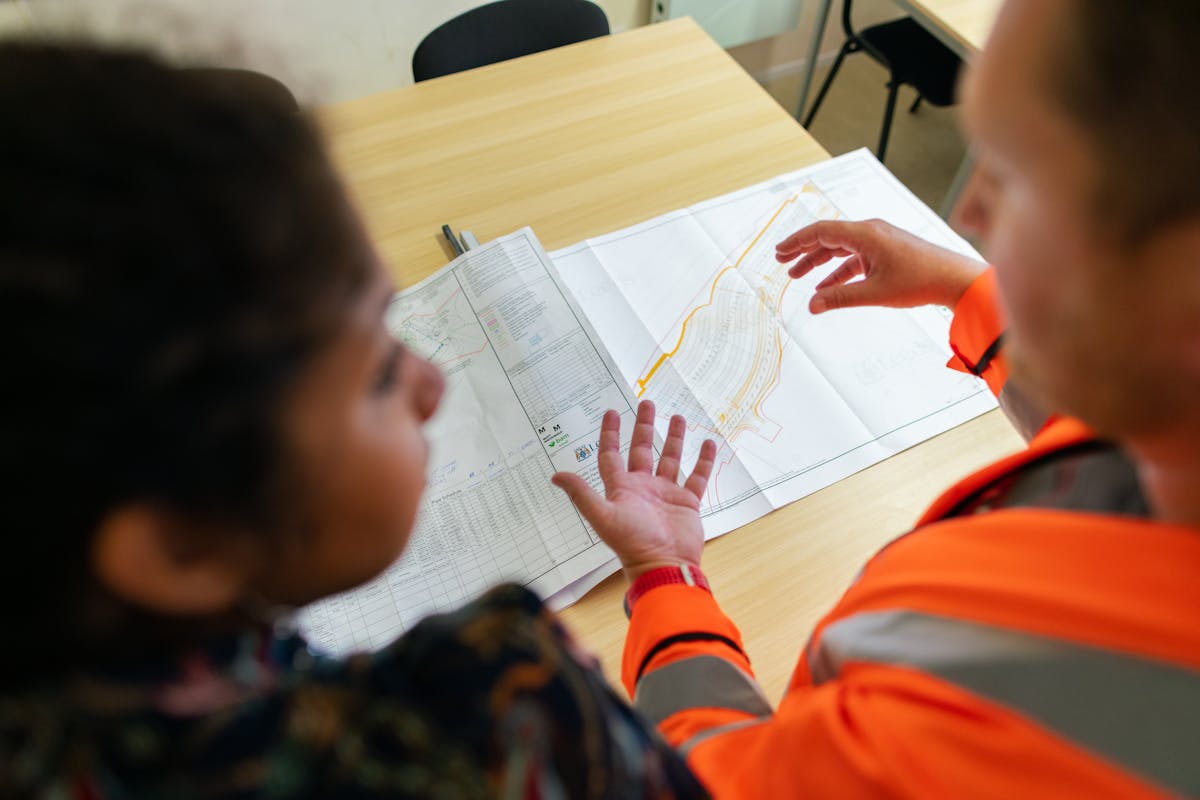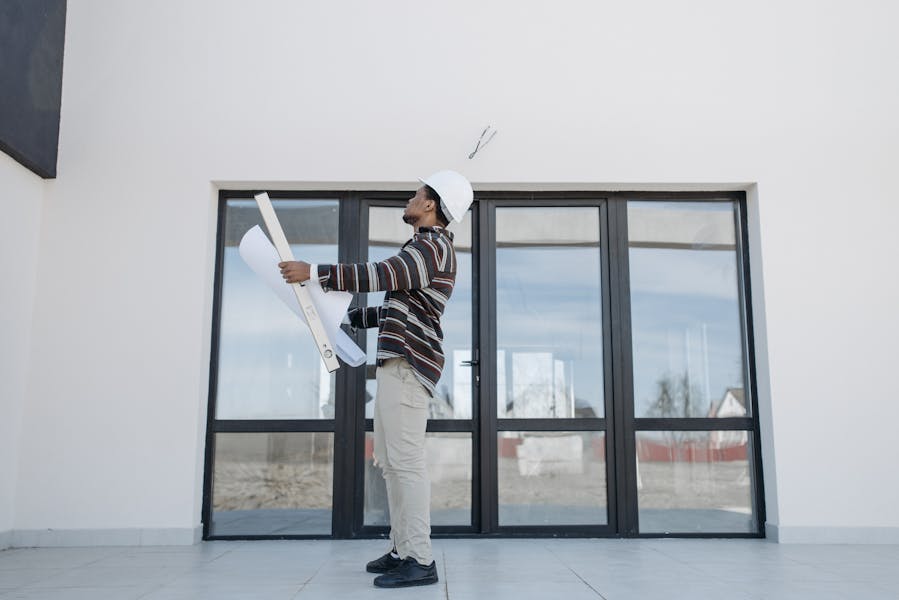
The seamless intersection of vision and reality is crucial in the world of infrastructure. Engineering surveying plays a vital role. It transforms ideas into tangible structures with precision tools and techniques. Surveyors ensure every aspect of a project aligns perfectly with the intended vision.
The Essence of Engineering Surveying
Engineering surveying requires a meticulous approach. It captures land features and characteristics with precision. This precision is critical for infrastructure development. Accurate data saves time and resources in these projects. Let’s explore the various components. These define the excellence in engineering surveying.
Engineers and surveyors specialize in several areas. They cater to a variety of infrastructure projects. Here are some key fields of expertise in engineering surveying:
-
Land Development: This transforms land into functional spaces. These spaces are for residential, commercial, or industrial use.
-
Traffic Engineering: This designs transport systems. These systems improve traffic flow and enhance safety for all users.
-
Landscape Design: This crafts outdoor spaces. These spaces harmonize with the environment.
-
Surveying: This involves accurate data collection. It uses advanced technology for property boundaries, topography, and construction.
-
Municipal Engineering: This collaborates with municipalities. The collaboration is on infrastructure projects like water and sewer systems.
Importance of Accurate Measurements
Accurate measurements are the backbone of successful infrastructure projects. Without precise data, projects risk falling short. They may not meet safety and functional standards. For instance, incorrect survey data can lead to failed designs. This can create safety hazards and costly errors in construction.
Land surveying methods utilize sophisticated equipment. Examples include GPS and laser scanning technology. These ensure the highest level of measurement accuracy. These advanced techniques not only improve efficiency. They also enhance the reliability of the data collected.
The Technological Revolution in Surveying
Technological advancements have revolutionized the surveying field. They have made processes quicker and more efficient. Let’s take a closer look at some of these innovations.
Innovative Tools and Techniques
The integration of modern technology into engineering surveying practices has been game-changing. Here is a list of some cutting-edge tools:
-
GPS technology: This allows for pinpoint accuracy in measurements.
-
Drones (Unmanned Aerial Vehicles – UAVs): These rapidly capture high-definition images and LiDAR data of large areas.
-
3D modeling software: This facilitates detailed visual planning of infrastructure projects.
-
Geographic Information Systems (GIS): These tools analyze and integrate spatial data for informed decision-making.
-
Laser scanning (LiDAR): This captures highly detailed 3D point clouds of existing conditions.
-
Robotic total stations: These automated instruments increase efficiency and accuracy in measurements.
Impact of Technology on Project Efficiency
The adoption of technology streamlines workflows in engineering surveying. For instance, using drones can significantly reduce the time needed for site surveys. With the ability to cover vast areas quickly, engineers can make informed decisions faster. Moreover, 3D modeling provides visualizations. These enhance collaboration among stakeholders, ensuring a unified vision.

Surveying’s Broader Impact
The Role of Surveyors in Environmental Planning
Surveys are not merely about plotting boundaries. They extend to environmental considerations. Accurate land surveying is essential. It helps in assessing potential environmental impacts of infrastructure development.
Surveying for Sustainability
Surveyors work closely with environmental scientists. They aim to mitigate risks that may harm the ecosystem. By identifying sensitive areas, like wetlands or endangered species habitats, they help devise strategies. These strategies balance development with conservation.
Through responsible surveying practices, the team can suggest modifications to projects. This minimizes ecological disruption. This forward-thinking approach ensures infrastructure can coexist harmoniously within the natural landscape.
Engineering in Property Transactions
Furthermore, engineering surveying plays a crucial role in property transactions. Accurate surveys provide the foundations. These ensure clear boundaries and legal descriptions in property agreements.
Accurate Boundaries, Clear Transactions
In property transactions, surveyors perform boundary surveys. These delineate property lines accurately. These surveys safeguard against potential disputes between neighbors. As a result, clients can confidently navigate their real estate transactions. They do so without the fear of unexpected surprises.
The Future Landscape of Engineering Surveying
The Evolving Role of the Engineering Surveyor
The role of the engineering surveyor is evolving. It now includes advanced data analysis and interpretation. Surveyors are increasingly involved in Building Information Modeling (BIM) workflows. They provide crucial geospatial context to digital models. This integration enhances project coordination and reduces errors.
Addressing Climate Change and Resilience
Engineering surveying plays a role in addressing climate change. Accurate elevation data helps in planning resilient infrastructure. This includes designing defenses against rising sea levels and extreme weather events. Surveyors also contribute to monitoring land subsidence and coastal erosion.
The Importance of Geodetic Control Networks
Establishing and maintaining precise geodetic control networks is fundamental. These networks provide the spatial framework for all surveying activities. They ensure consistency and accuracy across large infrastructure projects. Modern techniques like Continuously Operating Reference Stations (CORS) enhance the efficiency and reliability of these networks.
The Use of Mobile Mapping Systems
Mobile mapping systems, integrating GPS, LiDAR, and imaging sensors on vehicles, are becoming increasingly important. They allow for rapid and comprehensive data capture for linear infrastructure projects like roads and railways. This technology significantly reduces survey time and improves data density.
Ethical Considerations in Engineering Surveying
Ethical considerations are paramount in engineering surveying. Surveyors must adhere to professional standards and regulations. They need to provide accurate and unbiased data. This ensures the integrity and safety of infrastructure projects. Transparency and accountability are crucial aspects of their work.
The Future of Engineering Surveying
The future of engineering surveying will be shaped by further technological advancements. This includes more sophisticated AI-powered data processing, autonomous surveying robots, and enhanced integration with virtual and augmented reality for project visualization and collaboration. Surveyors will need to adapt to these changes. Continuous learning and skill development will be essential.
Engineering surveying excellence is the bedrock upon which successful infrastructure projects are built. Through meticulous measurement, technological integration, and environmental awareness, surveyors ensure that visionary designs are translated into safe, functional, and sustainable realities. Their expertise is indispensable in navigating the complexities of modern infrastructure development and ensuring a resilient built environment for the future.












